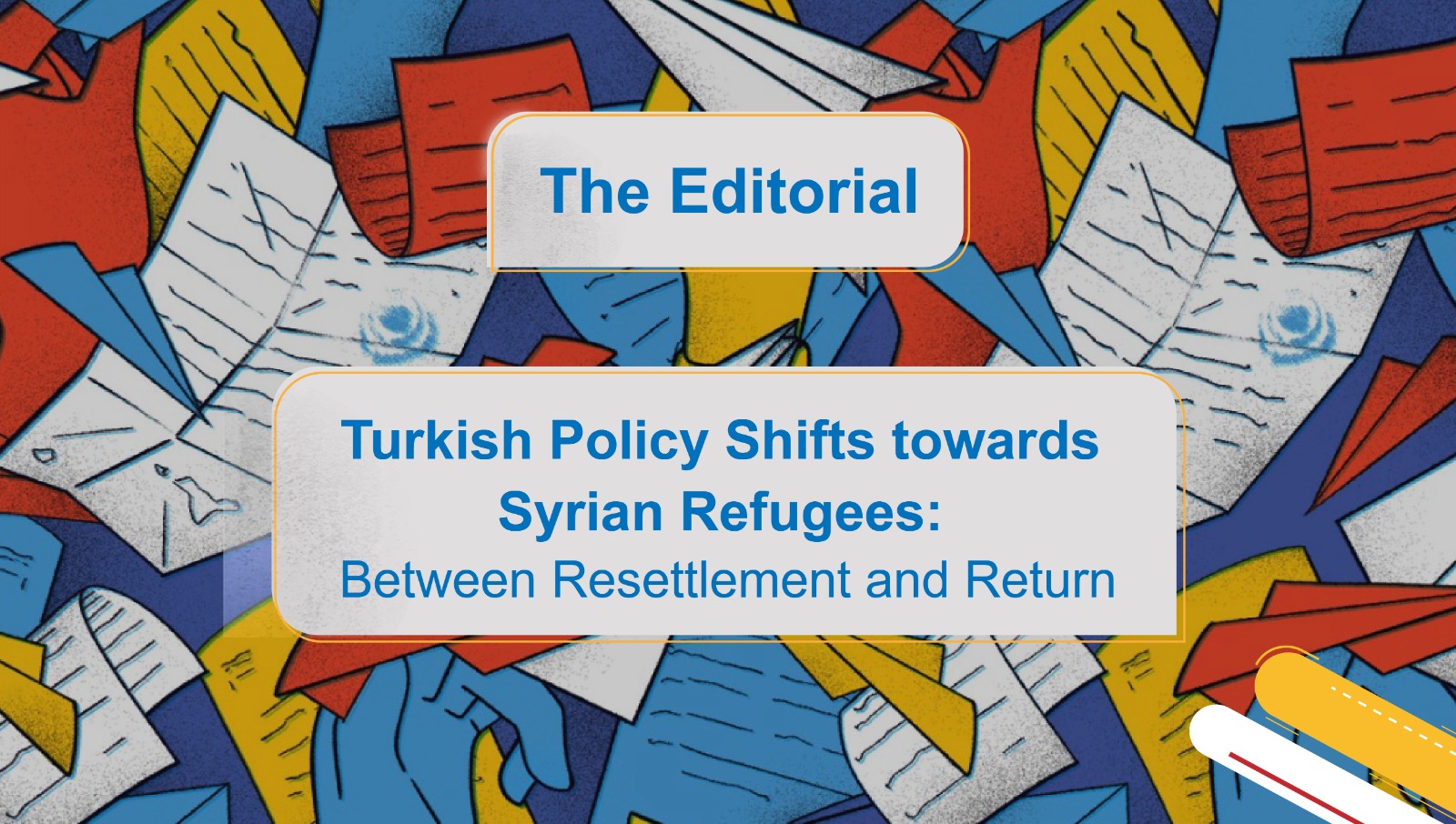Turkish Policy Shifts towards Syrian Refugees: Between Resettlement and Return
- updated: August 10, 2023
- |
Since the outbreak of the Syrian revolution in 2011, Turkey has hosted 3.6 million Syrian refugees due to the brutal repression of the Syrian regime against the uprising, aided by its allies Russia and Iran. The majority of these refugees came from the northern and northwestern regions, which witnessed some of the fiercest battles during the war. These areas, being adjacent to the Turkish border, served as escape routes for civilians fleeing violence and systematic bombardment.
In the early days of their arrival, Turkey provided substantial support to Syrian refugees. The Turkish people were sympathetic and ready to assist, with some offering their homes and helping with furnishing.
On an official level, the Turkish government treated Syrian refugees as “guests,” waiving the need for visas or entry documents, based on an agreement between the Syrian and Turkish governments. However, in early 2016, Turkey imposed visa requirements for Syrians entering its territory to prevent the influx of refugees escaping the war and to enhance its security.
Although the term “guests” might seem welcoming, Turkey’s reservations about the refugee agreement harmed Syrian refugees. They lacked legitimate rights as guaranteed by international law, such as the right to work, education, protection, and other rights.
In 2017, after the fall of Aleppo and the initiation of talks between Turkey, Russia, and Iran, Turkey’s policy towards Syria underwent significant changes. This led to several Turkish military interventions in Syrian border regions, such as Afrin, Tel Abyad, and Ras al-Ain, as part of its broader military involvement.
Parallel to the military actions, Turkey deployed military police, established centres like PTT, and influenced educational curricula, imposing the Turkish language and currency in northwestern Syria and Afrin.
Despite the lower number of registered refugees than officially announced, and their limited access to assistance, Syrian refugees faced challenges in Turkey. They often worked without official registration, making them susceptible to exploitation. The government’s discourse shifted public anger towards refugees, and calls for deportation and hate speech escalated, coinciding with election periods.
In recent years, Turkey experienced significant economic growth, affecting the country’s stability. This economic pressure facilitated the use of Syrian refugees as a political tool, blaming them for job scarcity and resource competition.
However, it is important to note that the situation is more complex. Many studies suggest that refugees can have a positive long-term economic impact on host countries, contributing to economic activity and growth in certain sectors. Nonetheless, the economic and social pressures on host countries can be substantial, especially when hosting large numbers of refugees over an extended period.
As Turkey pursued the establishment of a safe zone on its border since 2019, refugees faced increasing pressure. Those who were returned concentrated in northwestern Syria, the very region Turkey aimed to make safe, leading to demographic changes and hindering the return of original citizens.
In the midst of these events, women are disproportionately affected, enduring suffering from losing providers and lacking legal protection in host countries. During deportation, women face numerous risks, including sexual assault and exploitation, rendering them vulnerable.
In the Syrian Women’s Political Movement, we express deep concern for the fate of tens of thousands of Syrian refugees in Turkey, facing blatant violations of their basic rights under international agreements. They are detained, prevented from contacting relatives, and coerced into signing voluntary return agreements under pressure. This undermines any semblance of a safe and dignified voluntary return to their original homes and discredits the notion of returning to previously evacuated areas.
We emphasize our stance that the return of refugees must be conditioned by a political solution, the implementation of Resolution 2254, and the provision of a safe and neutral environment for the voluntary and dignified return of Syrian refugees to their original land. We also stress the necessity for countries refusing to normalise with the regime to exert pressure on it, urging its progress in the political process to achieve peace and sustainable stability in Syria.
We call upon the Turkish government to:
- Cease the forced deportation of Syrian refugee women and men to areas under security tensions or armed conflicts. Any repatriation process must be voluntary and undertaken after providing comprehensive information to the concerned individuals and ensuring that they have made informed decisions.
- Consider women’s circumstances, provide a safe environment, and enact laws to protect them that can be utilized in cases of violence and risks.
- Work to improve the living conditions of Syrian refugee women and men, including providing better employment opportunities, education, and healthcare.
- Implement policies for the integration of refugees into the local economy, promoting peaceful coexistence between the local community and refugees.
- Make intensive efforts to combat any form of hate speech or incitement against Syrian refugee women and men, and achieve justice in cases of violence or discrimination against them.
- Collaborate with the international community to address the Syrian disaster and its impact on Syrian refugee women and men in Turkey.
- Pressure the Syrian regime and provide a political solution to the crisis in Syria that ensures justice, equality, and a safe and voluntary return for Syrian refugee women and men.
The Political Committee of the Syrian Women’s Political Movement
